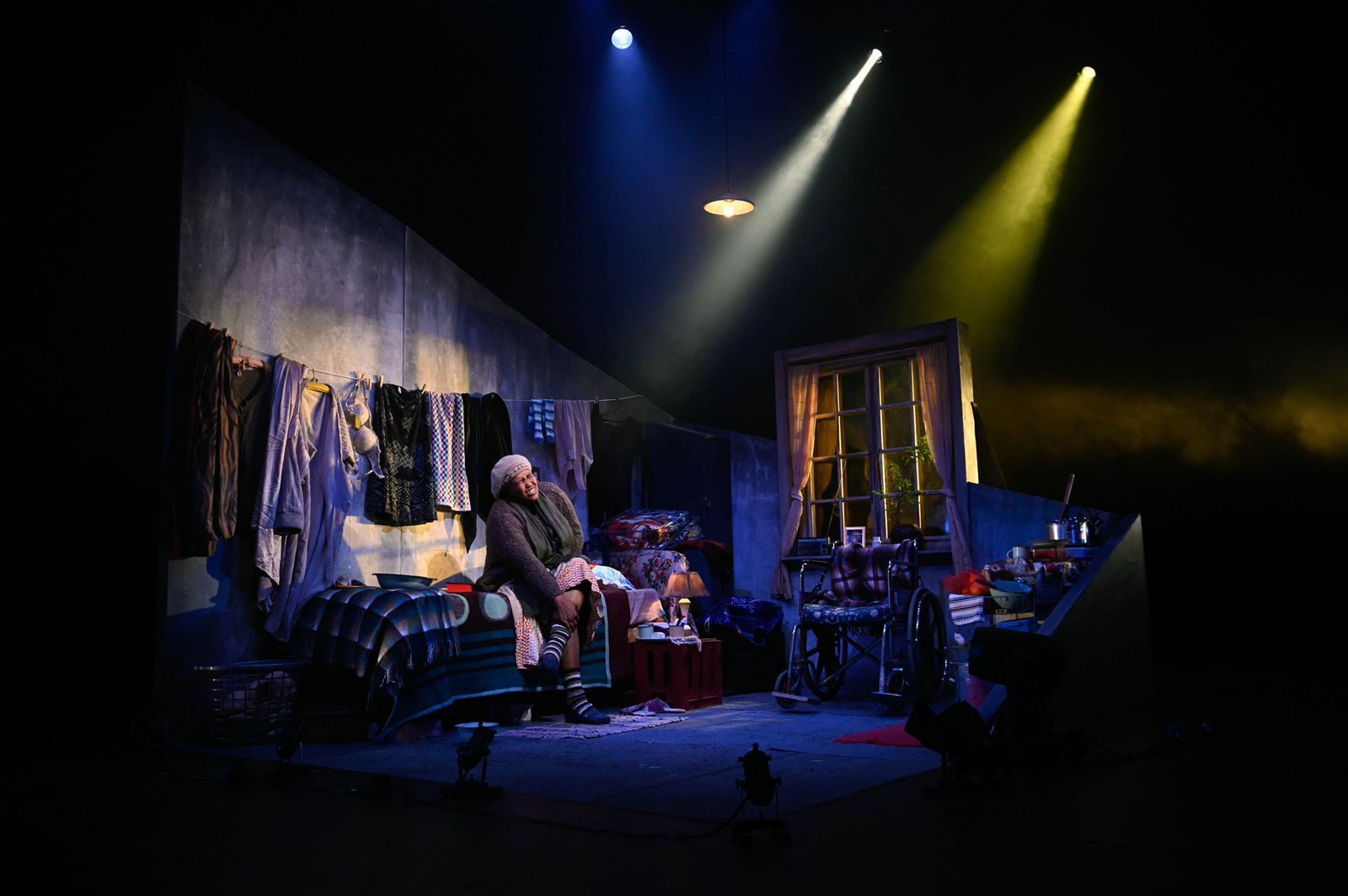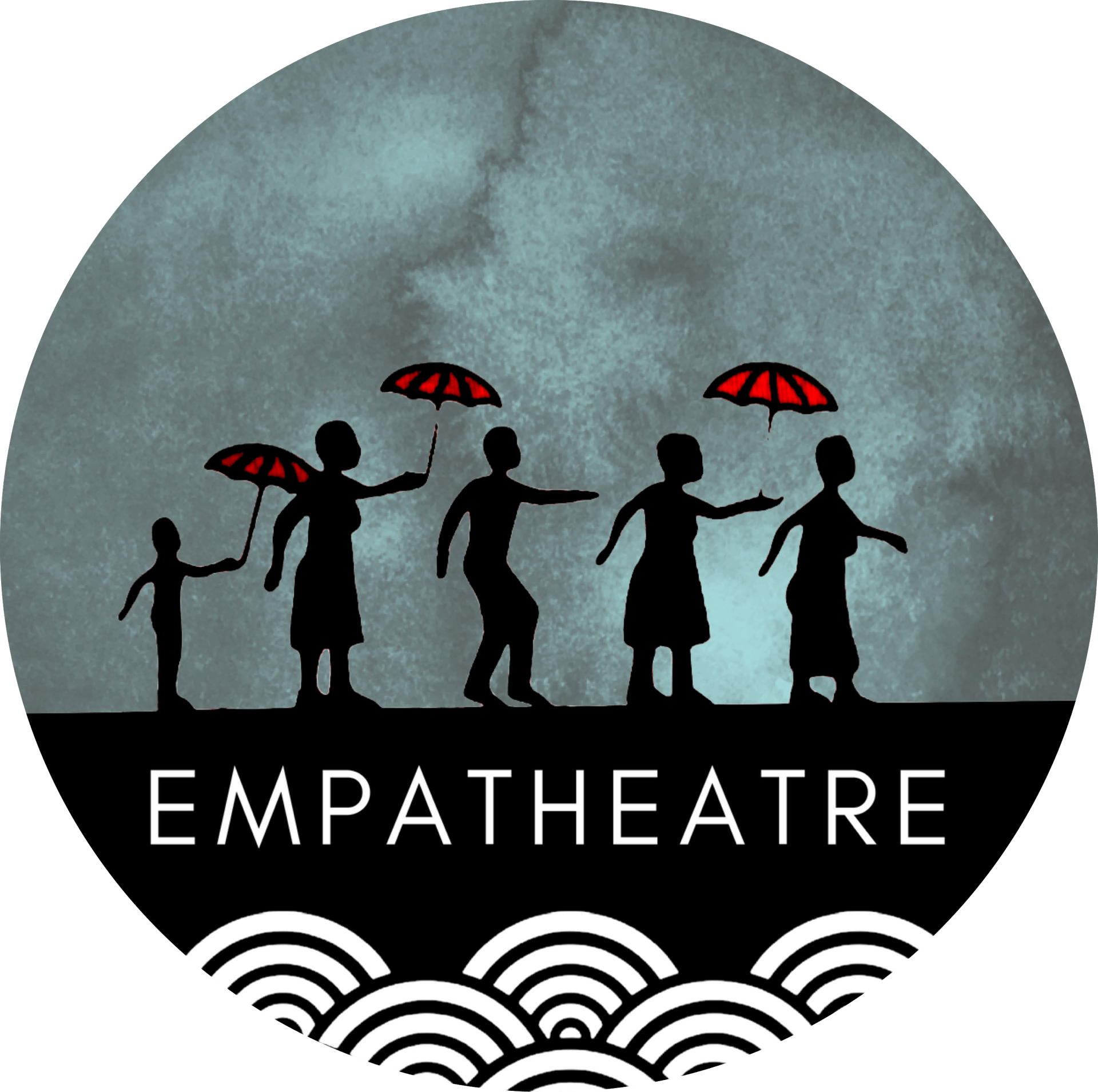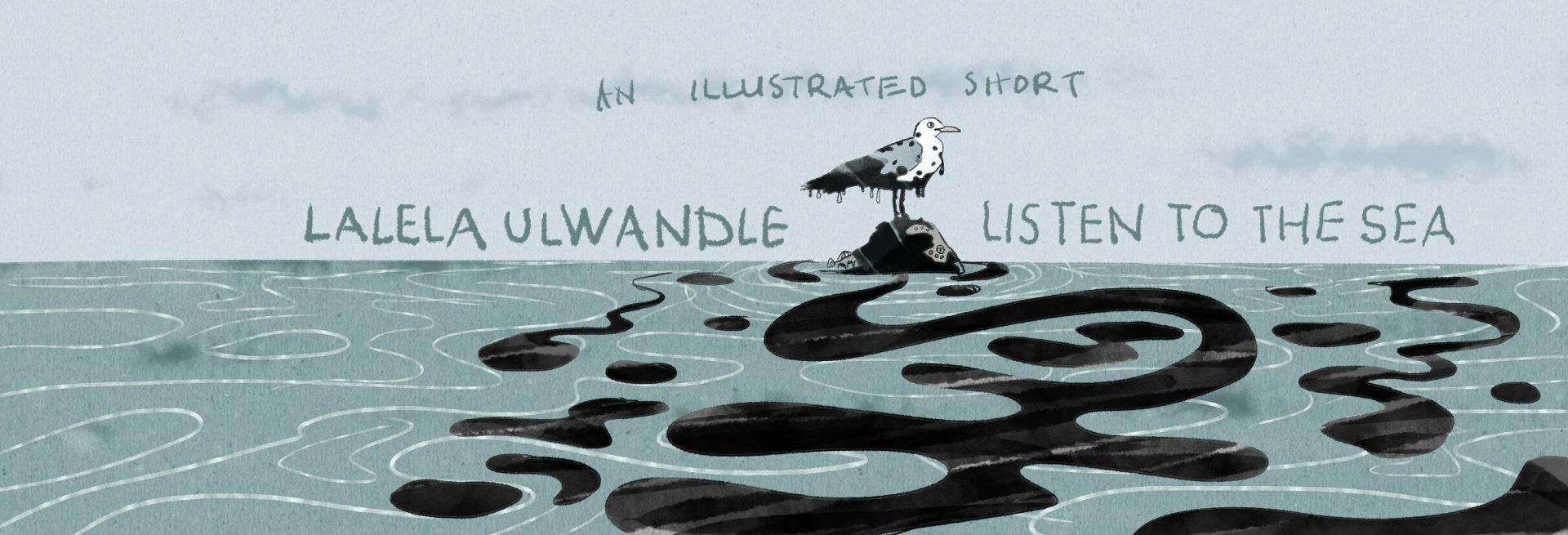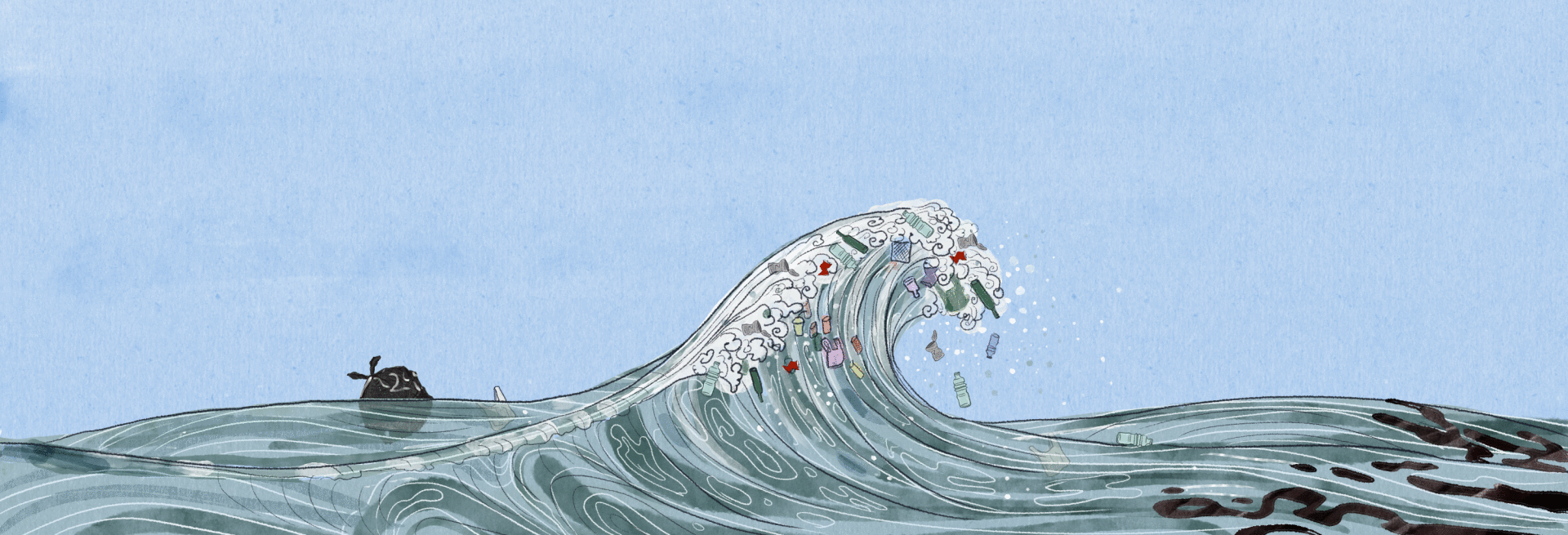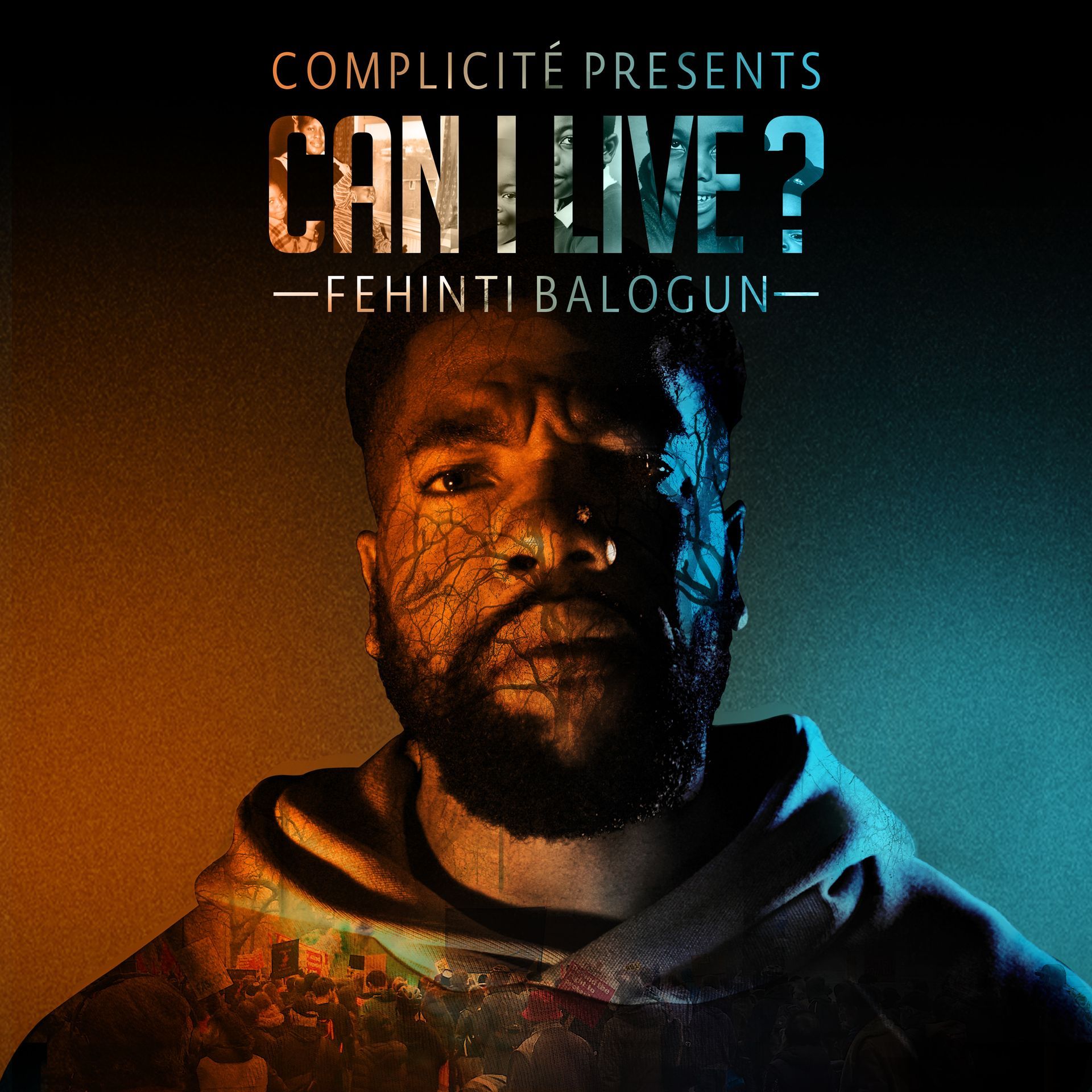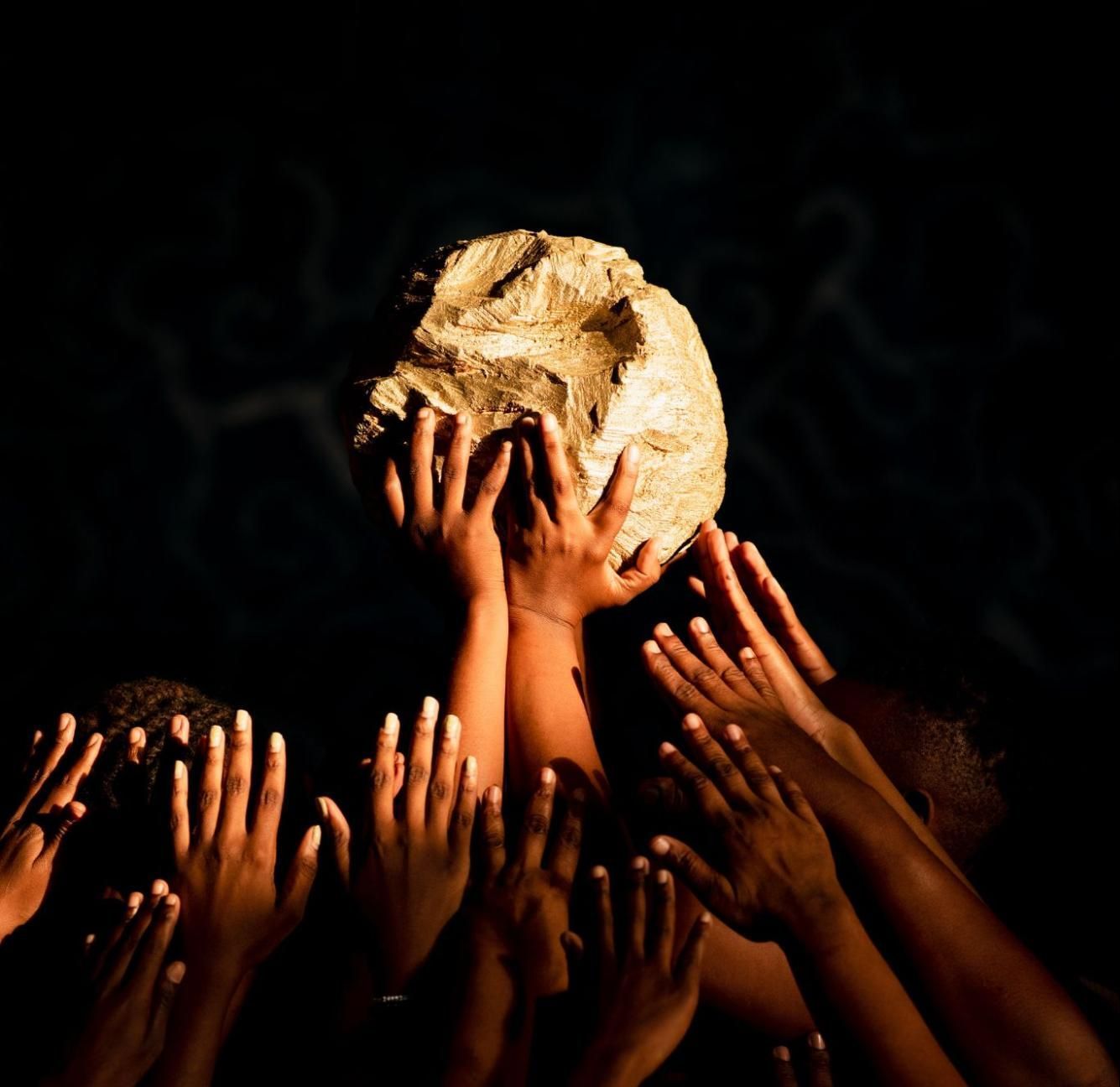The Launch of Lalela Ulwandle (Listen To The Sea) New Short Film
Empatheatre will be releasing its first new short film of at a public tribunal that will be lead by The Green Connection as part of their “Who Stole Our Oceans?” campaign.
-
Button
22 of September Empatheatre contributes evidence and testimony towards a National Ocean Tribunal
Empatheatre will be releasing its first new short film of at a public tribunal that will be lead by The Green Connection as part of their “Who Stole Our Oceans?” campaign. This short film is a new iteration of our recent theatre play and radio play “Lalela uLwandle: Listen to the Sea”. Empatheatre was honoured to collaborate with The Green Connection, drawing on our recent research through the One Ocean Hub, on marine governance, and the inclusions and exclusions that sit within the current system.
-
Button
Figure 1: Niren: “The sea remembers my boy, it doesn’t keep secrets….in the end it throws everything back at us” Illustration by Dylan McGarry
The short illustrated film, directed, edited and illustrated by Dylan McGarry, is constructed from excerpts from Lalela uLwandle written by Neil Coppen, with contributions from Mpume Mthombeni, Helen Walne, Gcina Mhlope, Taryn Pereira, Kira Erwin and Dylan McGarry. Lalela examines, from the perspectives and worldviews of many South African citizens, the questions, concerns, and thoughts on marine governance, tangible and intangible heritage and rapid expansion of blue economy plans. It also explores the many ways in which people of colour and the poor have been forcibly excluded from their access to the ocean. An example of this exclusion and violence is expressed by Nowandle’s character in the film. She reflects on how her grandmother’s (a traditional healer) pathways to the sea were fenced off by mining and conservation efforts, and the ancient practice of marine-based traditional medicine was stolen from her.
-
Button
Figure 2: Niren: " First it was the trawlers and now every day it’s something new. The government is selling our coastlines for mining, dumping their waste and shit in the water and thinking us fisherfolk don’t notice”. Illustration by Dylan McGarry
Earlier this year, the Green Connection reached out to Empatheatre to produce something for this tribunal, that could give a small taste of the collaborative research we have been working on with various ocean defenders in collaboration with the Coastal Justice Network. The ocean tribunal which will run over two days (21st-22nd September, with the film airing on the 22nd). This will be an opportunity for small scale fishers and other subsistence and small scale ocean users to present to a jury their concerns as testimonies around oil and gas exploration in our oceans, and what this will mean for their livelihoods, environment, recreation and sacred relationships with the ocean. Actors Mpume Mthombeni and Rory Booth, who narrate the stories of small scale fishers and traditional healers, expressed in the making of Lalela uLwandle, just how invisible and excluded the concerns of people of colour who rely on the ocean for their wellbeing and livelihood are constantly ignored, excluded or their voices edited. Mpume reflects: “It was powerful to learn from Sangomas and Inyangas the ancient wisdom and knowledge of the ocean that these healers have, and surprising that they are not consulted in ocean decision making at all”.
-
Button
Figure 3: Nowandle: “Traditional healers gathering muthi in the forests and rock pools were told by these authorities that they now needed to permits to abide by their ancestors wishes” Illustration by Dylan McGarry
The Green Connection aims to facilitate and encourage public dialogue and testimony around these concerns. Empatheatre similarly works to create an amphitheatre of empathy and works to inspire and encourage democratic public discourse and collective decision making. True to methodology, our small contribution to this Ocean Tribunal hopes to spark a generative conversation around the concerns of the most marginalised and most excluded peoples along our coastline. We hope that hearing the stories told by other South Africans in this format, may encourage further public political storytelling.
It's tragically fitting that this tribunal is happening now, where within the past two months the Kwa-Zulu Natal coastline from Durban to Salt rock is in serious crises. Most of these beaches are currently declared ‘no go’ swimming and fishing zones due to a spate of incidents involving toxic chemicals and raw sewerage.
Over the last few weeks Durban’s Battery beach has been closed after large numbers of swimmers and surfers fell ill with serious stomach cramps and vomiting resulting from a raw sewage spill off Durban’s popular beachfront.
Prior to this incident, all the beaches north of the Umgeni River mouth were closed after contaminated water made its way into the Umhlanga Lagoon after the UPL warehouse, containing extremely hazardous chemicals, was burnt during the civil unrest in July 2021.
-
Button
Figure 4: Nowandle: “By the time we had all realized what was happening the mining trucks were already lined up along our beaches…” Illustration by Dylan McGarry
After the Warehouse was destroyed, a deadly alchemy of farm pesticides and chemicals ran into the Umhlanga estuary, turning it a luminous turquoise colour, before flowing into the ocean and causing a range of fish and other marine creatures to begin washing up along the coastline.
-
Button
Figure 5: Niren's father: "“How can you drill, scrape and explode more than 4,600 square kilometers of our coastline, 60 kilometers from our shore, and expect it to not have any “detrimental risks”? And you know what their defense will be, they’ll tell us this mining will enrich us all, the poorest of the poor will benefit. But tell me one thing, how many poor people have actually benefited after all these hundreds years of land based mining eh?” Illustration by Dylan McGarry
According to the Daily Maverick, thousands of fish and prawns washed up along the beaches “dead or gasping for breath, while crayfish, crabs and octopus were also reported to have washed up on beaches next to uMdloti.”
The Maverick article goes on to say that shortly after the spill surfers complained of skin burns and that a ban was placed on fishing or eating any marine life off any of these beaches.
At the time of writing, most of these beaches, spanning a significant portion of the KZN coastline, were still no-go zones, with decimated ecosystems, the livelihoods of thousands of east-coast fisherfolk destroyed and a very unpromising future looming for the already devastated tourism sector who depends on the trade of holiday makers flocking to Durban’s beaches during the holiday seasons.
For those of you interested in watching the tribunal on the 21st and 22nd please subscribe to the Green Connection’s YouTube channel where it will be streamed live, follow this link to connect to the program and links to access the tribunal.
Also here is the details for the zoom link for the tribunal
When: Sep 21, 2021 02:00 PM Johannesburg
Topic: Oceans Tribunal Panel Discussion
Please click the link below to join the webinar:
https://us02web.zoom.us/j/85695874614?pwd=SElVZ1M1b3RZNkZ0blNHemNraDRaUT09
Passcode: 679266
We are grateful to the Green Connection for the funding for this iteration of the short film. Lalela uLwandle was created for the One Ocean Hub with UKRI funding. Lalela uLwandle was created in partnership between Empatheatre, The Environmental Learning Research Centre at the University Currently Known as Rhodes, and The Urban Futures Centre at the Durban University of Technology.
Sources.
https://www.iol.co.za/ios/news/kids-get-sick-at-the-beach-e465b67f-baab-4758-9cd3-80689c4fd291
